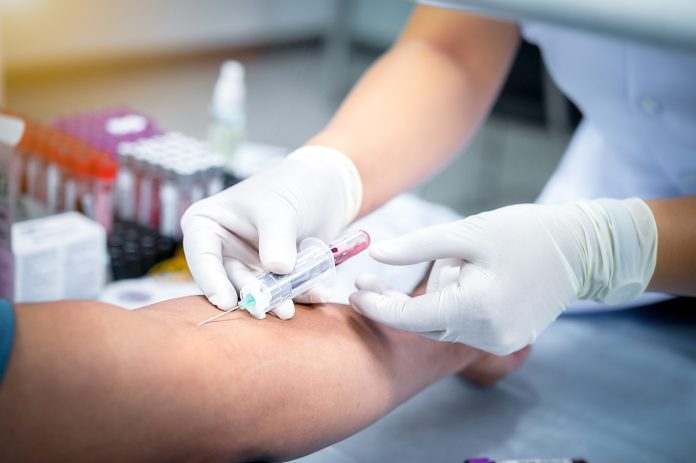The University of Liverpool researchers create a low-cost, handheld AI-powered blood test to detect Alzheimer’s biomarkers, enabling earlier diagnosis and global accessibility
Scientists at the University of Liverpool have unveiled a groundbreaking, low-cost blood test designed to detect Alzheimer’s disease at its earliest stages. Leveraging artificial intelligence and molecularly imprinted polymer-based biosensors, the handheld device accurately identifies key biomarkers, comparable to traditional hospital-based tests.
The research is published in Advanced Healthcare Materials and ACS Sensors.
Making Alzheimer’s disease tests accessible and affordable
Alzheimer’s disease is the most common form of dementia, affecting millions of people worldwide. While tests for Alzheimer’s are accurate, they tend to be expensive, complex, and not widely accessible. This situation limits the ability to make early diagnoses, particularly in local clinics, GP surgeries, and in low- and middle-income countries where resources are scarce.
The lack of accessible and affordable testing highlights the urgent need for innovative, low-cost solutions for the early detection of Alzheimer’s disease.
In one study, researchers developed a sensor that utilises specially designed “plastic antibodies”-synthetic molecules mimicking the function of natural antibodies-attached to a porous gold surface. This allowed them to detect tiny amounts of a protein linked to Alzheimer’s (called phosphorylated tau 181, or p-tau181) in blood samples. The test performs well across various blood preparations and yields results that align with those of high-end laboratory methods.
In the second study, the team created a sensor built on a simple printed circuit board. They used a unique chemical coating that detected the same Alzheimer’s biomarker and differentiated between healthy and patient samples. This sensor works almost as well as the gold-standard laboratory test (SIMOA), but at a far lower cost. The study was part of a UK-Japan MRC AMED research project on the development of ultrasensitive, multianalyte biosensors for early diagnosis of Alzheimer’s disease.
The device is designed for ease of use and connects to an affordable reader and a web application that utilises AI to analyse results instantly. This allows it to be operated without any specialised training, making it a practical and accessible tool for healthcare professionals worldwide.
Combining low-cost sensors with AI
Dr Sanjiv Sharma, the corresponding author and PI on the UK-Japan (MRC–AMED) grant, from the University of Liverpool’s Institute of Systems, Molecular and Integrative Biology, expressed optimism about the test’s potential. He said, “Our goal is to make Alzheimer’s testing as accessible as checking blood pressure or blood sugar. By combining low-cost sensors with affordable electronics and artificial intelligence, we can deliver accurate results for multiple biomarkers in a drop of blood in minutes—whether in an NHS clinic or in a rural health centre anywhere in the world.” This emphasis on affordability holds promise for enhanced healthcare accessibility.
The research aligns with the World Health Organization’s calls for more affordable and decentralised tests for brain diseases. These innovative technologies aim to promote earlier diagnosis and improve care for individuals living with Alzheimer’s disease and dementia.








